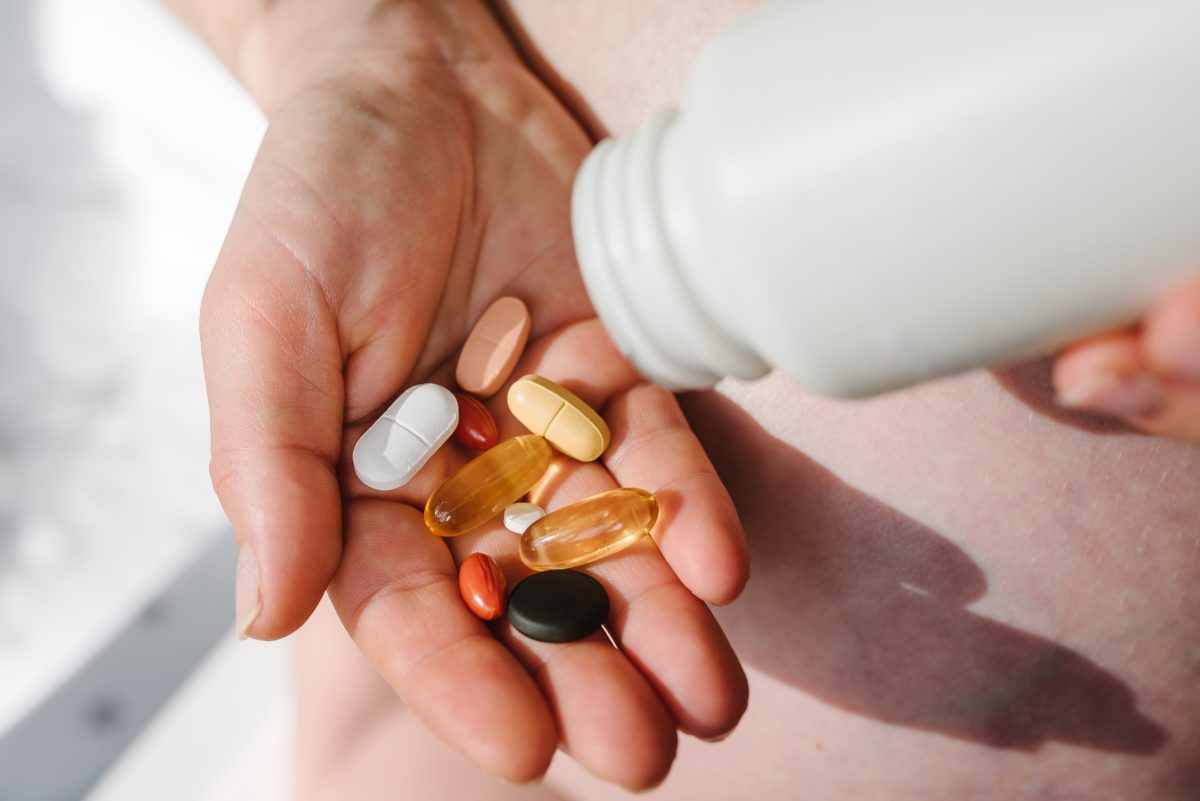Probiotics vs. digestive enzymes: everything you need to know
- Supplements
When considering probiotics vs. digestive enzymes, you might wonder which option is best for you.
Navigating the world of supplements to support your gut health is a minefield, particularly figuring out which ones are research-backed and not a waste of money.
In this blog post, we’ll discuss what probiotics and digestive enzymes are, how they work, and compare their potential impacts on digestive well-being.

What are probiotics?
Probiotics are live bacteria and yeasts that positively affect your health when you take them.
There are many different strains of probiotics, with different ones giving you different health benefits.
Some of the proposed health benefits of probiotics are (1, 2):
- Improved gut microbiota
- Helping gastrointestinal function
- Supporting your immune system
- Positively influencing mood and cognitive function
You can find probiotics in lots of different forms and brands. They can come in powders, capsules, and sachets.
For a deep dive into probiotics, including the research-backed strains and how they work, check out our blog: Probiotics for IBS.
What are digestive enzymes?
Digestive enzymes are naturally produced by your body to break down foods into simpler forms that the body can absorb more easily.
They begin to work as soon as they come into contact with food.
People with certain digestive disorders or specific enzyme deficiencies may need to have additional enzymes to support them in digesting their foods properly.
Digestive enzymes can be categorized into three primary groups, each with distinct roles in breaking down various nutrients:
- Amylases – break down carbohydrates as a usable energy source
- Proteases – break down proteins
- Lipases – process and break down fats and oils.
To learn more about the specifics of digestive enzymes, check out our IBS digestive enzyme guide.
Comparison table of probiotics vs. digestive enzymes
| Digestive Enzymes | Probiotics | |
| Function | Facilitate the breakdown of food into simpler forms | Promote a healthy balance of gut microbiota, supporting a healthy environment |
| Source | Naturally produced in the body or created to mimic it | Bacteria and yeasts curated in a lab |
| Formulation | Available as standalone supplements or combined with other enzymes | Contained in probiotic supplements |
| Use Cases | Individuals with deficiencies or digestive disorders | Promote gut health, alleviate gastrointestinal issues, support immune system |
| Common Examples | Amylases, proteases, lipases | Lactobacillus, Bifidobacterium |
How do I know if I need enzymes or probiotics?
When to choose probiotics:
If you experience digestive problems such as bloating, gas, constipation, or diarrhea, probiotics may help restore the balance of gut bacteria and alleviate symptoms.
The British Society of Gastroenterology guidelines recommend that you can trial probiotics as a first-line management for IBS (3).
If you try probiotics, you should try the same one for 12 weeks and monitor your symptoms. You should discontinue the probiotic or try a different strain if they are not improved.
When to choose digestive enzymes:
Some health conditions may lead to issues with producing enough digestive enzymes. These may include:
- Chronic pancreatitis
- Cystic fibrosis
- Pancreatic cancer
- Lactose intolerance.
Under the guidance of a medical professional, digestive enzymes may be needed for people with these specific conditions to support normal digestive function.
Digestive enzymes may also be helpful for people who have difficulty breaking down fructans due to microbiota imbalances.
It’s often recommended to trial digestive enzymes for at least a few weeks to see if there is a noticeable improvement in digestive symptoms.
This period allows sufficient time to observe whether the enzymes effectively address your specific issue.
What are the effects of probiotics vs digestive enzymes on managing my weight?
For some conditions, such as pancreatic insufficiency, it can be challenging to maintain or gain weight due to symptoms.
For these people, treating the insufficiency may lead to better weight management (4).
However, for the average person without these conditions, taking digestive enzymes is unlikely to affect your weight.
Some limited research suggests that probiotics may regulate appetite by affecting hormones that control hunger and satiety (5).
More research is needed to understand these mechanisms fully – neither probiotics nor digestive enzymes are guaranteed to make a difference to your weight.

Can you take probiotics and digestive enzymes together?
While probiotics and digestive enzymes both work within the gastrointestinal tract, they can be taken together.
Probiotics can be trialed as a first-line management strategy for IBS (6).
But if you have IBS and are sensitive to lactose, fructose, or GOS, you may want to try digestive enzymes as well to support your symptom management.
When should probiotics and digestive enzymes be taken?
The timing of when to take digestive enzymes and probiotics can vary based on specific product instructions,
It’s recommended to take digestive enzymes with meals. This allows the enzymes to break down nutrients as you eat.
Probiotics, however, can generally be taken with or without food. The choice may depend on personal preference or any specific recommendations provided on the product.
Taking probiotics at the same time each day can help establish a routine and improve consistency, which may benefit the supplement’s overall effectiveness.
If you have specific health concerns or are taking other medications, it’s advisable to consult with a healthcare professional for personalized advice.
How do you choose the best probiotic vs digestive enzyme?
Selecting the best probiotic with digestive enzymes can depend on individual health needs, specific digestive issues, and personal preferences.
The effectiveness of probiotics and digestive enzymes can vary between individuals, and there isn’t a one-size-fits-all solution.
When choosing a probiotic with digestive enzymes, consider strain specificity and the combination of strains.
Look for a product that contains well-researched and clinically studied strains, such as Lactobacillus and Bifidobacterium species.
Similarly, for digestive enzymes, consider the inclusion of amylases, proteases, and lipases.
Choose products from reputable brands that adhere to quality standards. Look for third-party testing or certifications to ensure the potency and purity of the product.
Follow the recommended dosage instructions provided on the product label or as a healthcare professional advises.
Summary
Digestive enzymes improve digestion processes, while probiotics keep the digestive environment healthy.
They are sometimes contained within the same supplement, but reasons for taking them may differ,
Individual responses to probiotics and digestive enzymes can vary, so it is recommended to consult a healthcare professional for personalized recommendations.